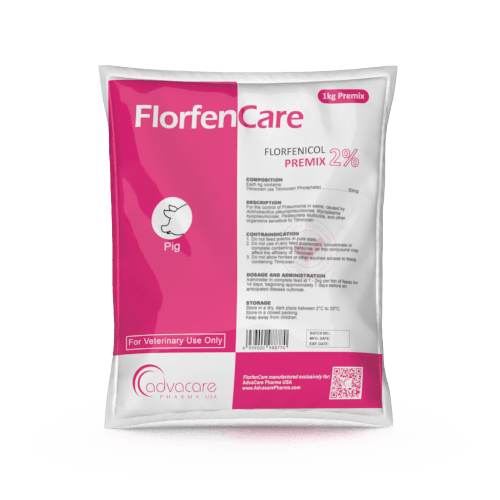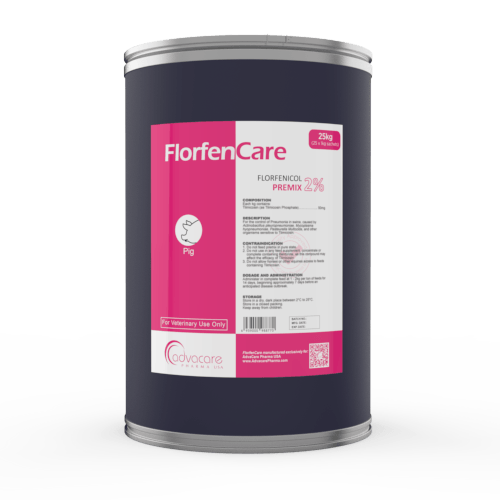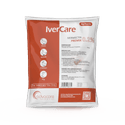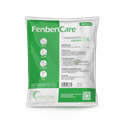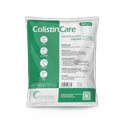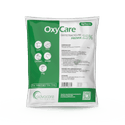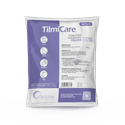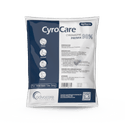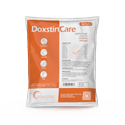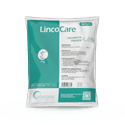- Home›
- Veterinary Pharmaceuticals›
- Veterinary Powders and Premixes›
- Veterinary Premixes›
- Florfenicol Premix
Florfenicol Premix
Dosage
Packaging
What is Florfenicol?
Active Ingredients: Florfenicol
Florfenicol Premix is an antibiotic drug used to treat and control certain bacterial infections in pigs. It is indicated for swine respiratory disease caused by Actinobacillus pleuropneumoniae and Pasteurella Multocida. The bacteria's susceptibility to Florfenicol should be verified before beginning treatment.
Florfenicol is a thiamphenicol derivative, which is similar in action to chloramphenicol. It works by inhibiting protein synthesis within the bacteria. Florfenicol displays a broad spectrum of antibacterial activity against gram-negative bacilli, gram-positive cocci, and atypical bacteria like Mycoplasma.
This is a highly effective and well-tolerated broad-spectrum antimicrobial drug. Florfenicol, a thiamphenicol derivative, is more active in vitro than chloramphenicol (regarding thiamphenicol derivates) against many pathogenic strains of bacteria. Florfenicol is approved for use in cattle, as an oral medicated feed or water in swine and fish, and as a topical otic preparation in dogs. However, this form of drug is intended only for pigs.
It is highly lipid soluble and is used either as the free base or in ester forms. It is a relatively stable compound and is unaffected by boiling, provided that a pH of 9 is not exceeded. Florfenicol also contains a fluorine molecule. These compounds improve efficacy and reduce toxicity. The fluorine molecule also decreases bacterial resistance.
Regarding mode of action, phenicols, including florfenicol, inhibit microbial protein synthesis by binding to the 50S subunit of the 70S ribosome, impairing peptidyl transferase activity. Peptide-bond formation is inhibited, leading to the inability of peptides to elongate. The effect is typically bacteriostatic, but high concentrations of phenicols may be bactericidal for some species. Resistance to phenicols develops gradually. Inactivating enzymes may also contribute to resistance. Some resistant gram-negative bacteria exhibit nonenzymatic resistance based on inducible permeability blocks, both chromosomal and plasmid-mediated. Resistance may also occur in conjunction with resistance to other antimicrobials, as multiple resistance genes are often carried on the same plasmid.
Phenicols are effective against many genera of gram-positive and gram-negative bacteria, several anaerobes (including Bacteroides fragilis), as well as Rickettsia and Chlamydia spp. This drug is notable for its anaerobic spectrum and is effective against MRSA, Salmonella, Pasteurella, Mycoplasma, and Brucella spp, but resistance is common in Pseudomonas aeruginosa.
Absorption of phenicols occurs promptly and rapidly from the upper GI tract in nonruminant animals. Distribution is extensive, with reversible binding to albumin and penetration into almost all tissues, including the brain. Florfenicol is rapidly absorbed, and milk may interfere with its absorption. Biotransformation occurs primarily in the liver via glucuronide conjugation, and urinary excretion includes inactive forms. Renal excretion is the principal route, with some contribution from the biliary route and enterohepatic cycling.
It is important to note Florfenicol Premix is for veterinary purposes only.
This antibiotic is also available in the form of injection, oral solution, and oral soluble powder.
Florfenicol Premix is a GMP-certified product that has been manufactured by AdvaCare Pharma, a pharmaceutical company specializing in global distribution. This medication is a part of our comprehensive catalog of veterinary treatments available for exportation. Our manufacturing facilities are located in China, India, and the USA.
Why are we a top Florfenicol manufacturer?
AdvaCare Pharma is a reputable and leading manufacturer of Florfenicol Premix. Our product range of 250+ veterinary medicines are customized and adapted to address the market requirements of our veterinary distributors. We provide unparalleled assistance throughout the entire journey - including support with documentation and product registration. By adhering to strict GMP standards, we ensure that the manufacturing of our Florfenicol Premix and 30+ other veterinary premixes and oral powders are efficacious and of reliable quality.
Uses
What is Florfenicol used for?
It's used to treat bacterial infections, including swine respiratory disease.
What animals can be treated with Florfenicol Premix?
This medicine is recommended for pigs.
How is Florfenicol Premix used?
This product has been manufactured as powder, which is intended to be mixed into feed. The product should be used immediately when mixed with feed. Keep good hygiene practices when mixing this drug.
Why is Florfenicol Premix used for pigs?
Respiratory diseases in pigs are very common and have a multifactorial nature. Adding this premix can help in treating and preventing infections from the upper respiratory tract of sick and healthy pigs. The bacteria can be from a primary cause or an opportunistic secondary bacteria. The disease is very serious when concurrent infections exist.
Is only Florfenicol Premix enough for treating respiratory disease in pigs?
This antibiotic can be used as a preventative measure or as a treatment method in pigs. Sometimes, this antibiotic can be enough. However, very often, animals need supplementation of vitamins and minerals or other drugs. The antibiotic choice should be based on the antibiogram results.
The temperature in farms should be properly regulated. A good advice for farmers is to practice "all-in, all-out". The harmful effects of Florfenicol can be minimized by implementing certain strategies.
What symptoms can Florfenicol Premix address?
Florfenicol can address the symptoms caused by Pasteurella multocida, including coughing, labored breathing, and failure to grow. It can also reduce the signs of sneezing and nasal and ocular discharge. In cases of Porcine Reproductive and Respiratory Syndrome virus, the clinical signs of cyanosis, growth retardation, and reproductive losses can be suppressed. This antibiotic can also alleviate the signs of coughing, conjunctivitis, and dyspnea in cases of PRRSv.
Is this antibiotic effective against secondary infections?
Pigs are affected by many viruses, including PRRSv, PCV2, IAVs, and PRV. While having the disease, animals have a low immune system, which leads to increased susceptibility to many bacteria. Additionally, if the environmental conditions are not proper, it can increase the chances of infections. If the secondary infections are due to bacteria, antibiotic treatment is needed. Florfenicol Premix can be effective if there is a present bacterial infection. To reduce the chances of bacteria and increase the treatment chances, overcrowding should be managed and also normal flow ventilation and temperature are needed.
Can Florfenicol Premix be used for pregnant and lactating animals?
This drug is effective against swine respiratory diseases, but its efficiency can vary based on the animal’s health status. The veterinarian should decide whether this drug is harmless in pregnant or lactating animals. Professionals should outweigh the risks and benefits for pregnant and lactating animals. The safety mainly depends on the stage of pregnancy or lactation.
Is Florfenicol Premix used only in swine?
No, this drug can also be used for cattle. It can be used for the treatment and control of bovine respiratory disease (BRD). It targets the major bacterial causes of BRD, such as Mannheimia haemolytica, Pasteurella multocida, and Histophilus somni. It also helps in the treatment of foot rot.
This drug can reduce the signs of coughing in cattle with BRD. It can also reduce the amount of nasal discharge, which ranges from clear and watery to thick and mucous-like. Labored breathing can also be relieved in cases of BRD, and the body temperature can be normalized. Animals fed with Florfenicol Premix can become more active by reducing their depression and lethargy, and also by normalizing their appetite. This drug can reduce the face and eye swelling and normalize the heart rate.
How should Florfenicol Premix be stored?
This medication should be stored in a dark, dry location under 25°C. Keep the medicine in a tightly sealed container when not in use.
What is the withdrawal period for Florfenicol Premix?
No withdrawal periods have been established for this medicine.
Dosage
How much Florfenicol Premix should be given to pigs?
The usual dose is 10-20mg of Florfenicol per kg of body weight. The duration of treatment should last for 5 days.
The veterinarian should determine the dose based on the animal’s species, weight, age, and current health condition.
Refer to a veterinary doctor or pharmacist for guidelines on dosage.
Side Effects
As with all pharmaceuticals, some unwanted effects can occur from the use of Florfenicol Premix.
Some side effects may include but are not limited to:
- gastrointestinal effects
- transient diarrhea
- decreased appetite
Serious side effects may include:
- allergic reactions
- anorexia or decreased water consumption
- signs of blood dyscrasias (e.g., unexplained bleeding or bruising)
- acute kidney injury
Gastrointestinal disturbances are common in most of the animals. Anorexia and lethargy are also very common. Phenicols can suppress the immune system of animals, and vaccination is not recommended if the animals are treated with antimicrobials. Phenicols can inhibit protein synthesis, and wound healing might be delayed.
Undesired side effects might occur in pregnant and lactating animals. The veterinarian should be cautious when choosing the right antibiotic for the animal’s current health condition.
For a comprehensive list of all possible side effects of this medication, consult a veterinarian.
Precautions
Do NOT use Florfenicol Premix for an animal that:
- has a known allergy or hypersensitivity to any of the ingredients.
- is intended for breeding.
Why is Florfenicol Premix used in pigs?
Florfenicol Premix is used as an antibiotic feed additive for swine. It is used to treat and control certain bacterial respiratory infections in pigs. It is especially indicated for swine respiratory disease caused by Actinobacillus pleuropneumoniae and Pasteurella Multocida.
Pig Bacterial Infections
This antibiotic feed is an additive that helps in preventing and treating respiratory infections in pigs. In swine, the drug is utilized to manage bacterial diseases such as the swine respiratory disease complex (SRDC).

You might be interested in...
Why AdvaCare Pharma?
As an industry leader, we are aware of our responsibility to provide affordable and sustainable solutions to improve healthcare worldwide.
